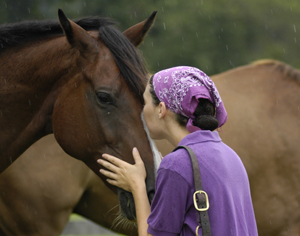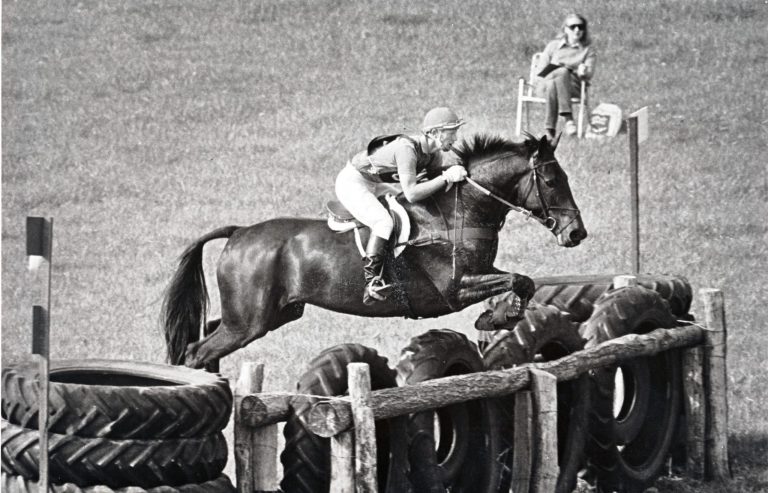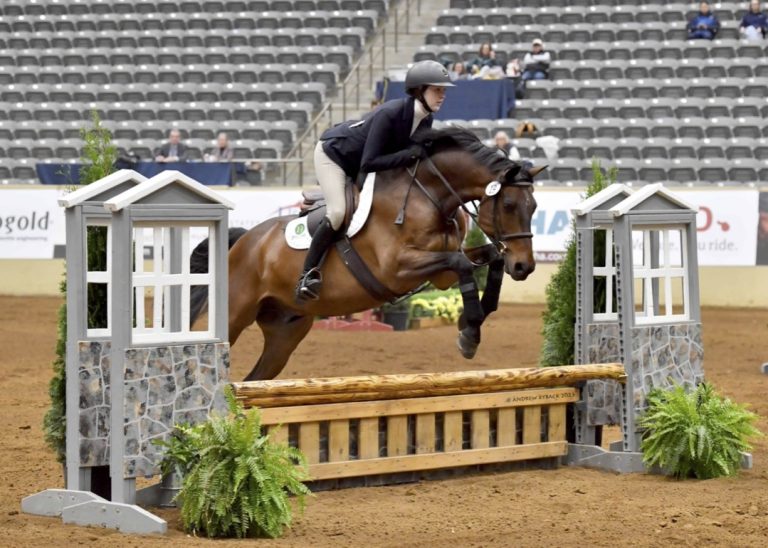I always look forward to tomorrow’s ride. I think of all the things I could’ve done to make it better and then try those things the next time I ride.
Ally Pennell, Montana

A bad ride can have two connotations. One – my horse spooked, stopped, etc. and I fell off. For that type of bad ride (which thankfully doesn’t occur too often), I take a deep breath, get back on and try again. Depending on how hard the fall, I may have a glass of wine and 2 aspirin that evening! The second type of bad ride is where we are trying to learn something new and it just isn’t happening. Again, a deep breath and then I ask myself, is my horse trying to teach ME something? With that thought in mind, I ask my horse again by changing “something”?and the majority of the time we make progress. We may not ?nail it’, but we made forward progress – together. Deep breaths and patience work for me?and yes, that occasional glass of wine.
Dawn Gucciardo, Ohio
My horse Wylie is a reliable hunter. I only show a few weekends a year, so if we have a bad class it is usually because I’m out of the groove and have forgotten what the pace feels like to jump a course. I’ll be eager to get back in the ring: a little more pace, sing a song to myself to keep the rhythm and a strong ride to the first fence will usually put things right. If it’s a green horse who is going well at home but doesn’t have any show experience, I do a gut check and make sure he is the one of us who is nervous, not me. He needs to be able to trust me to give him the same ride at the show he gets at home. Smile, breathe, hack around the show grounds and show in a lower divisions until we both feel like we do over the jumps at home.
Will Mobley, Missouri
What do I do to improve a bad ride? Ask my daughter to watch me. She is great help at problem solving, and most importantly, is very tactful in suggesting position fixes for her mom!
Hansi Dean, Wisconsin
I take a deep breath, soften my feel to relax my horse, and do something fun or easy for him before trying again, always ending on a good note.
Gayle Welsh, Oregon
I have learned not to get emotional and realize that?most of the time it is me who is at fault, not my horse. Sometimes you just have to deal with the horse you have that day. He may not be behaving like the gentlemen he is at home, but I have to suck it up and make it a good ride. I try to look at what we’ve worked on in the past and take a step back if I have to. As my trainer says, “Use all the tools you’ve learned,” whether it’s counter-bend, shoulder-in, shoulder-fore or just taking a fence to break up the flatwork. I work on something different and then do something I know my and I can?do to make a good end to a bad ride.
Sara Baker, Maryland
One of my dressage trainers once told me that dressage is yoga for my event horse. I think that this metaphor can be applied to any discipline to improve a bad ride. When I find that my horse is struggling with an exercise, I always take us back to a walk. We do lots of bending and suppling exercises like correct bend to counter bend, shoulder-in and my favorites?renvers and travers. We might even do all of this while walking around the farm. Once I stretch my horse’s neck, shoulders, back and hindquarters, my horse feels refreshed. A bad ride probably means that my horse is tense and tight somewhere. Yoga for horses, that’s what I do when I’m having a bad ride.
K.C. Cowles, Maryland
Read more answers to this question in “Rider to Rider” in the July 2011 issue of Practical Horseman magazine.










